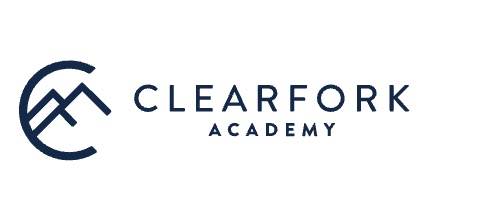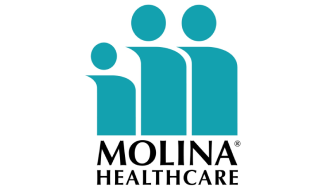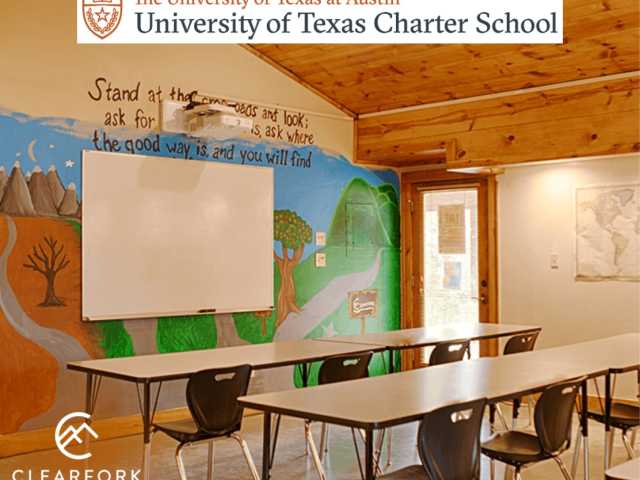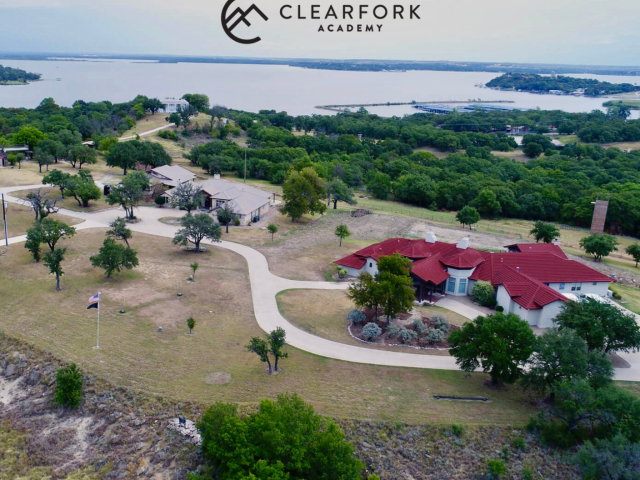
Fort Worth, Texas, United States
Clearfork Academy For Boys
Verified
Verified
This provider’s information has been quality-checked by Recovery.com’s Research Team for accuracy and completeness, including center verification through appropriate third-party organizations.
Joint Commission Accredited
The Joint Commission accreditation is a voluntary, objective process that evaluates and accredits healthcare organizations (like treatment centers) based on performance standards designed to improve quality and safety for patients. To be accredited means the treatment center has been found to meet the Commission's standards for quality and safety in patient care.
Insurance Accepted
This center accepts insurance, exact cost can vary depending on your plan and deductible.
Estimated Cash Pay Rate
The cost listed here ($1,195/day) is an estimate of the cash pay price. Center pricing can vary based on program and length of stay. Contact the center for more information. Recovery.com strives for price transparency so you can make an informed decision.
Highlights from the Center
Highlights
These highlights are provided by and paid for by the center.
Customized Treatment Plans
Holistic Approach
Certified Professionals
Adolescents
About Clearfork Academy For Boys
Situated on a sprawling ranch in Fort Worth, Clearfork Academy is an outdoor adventure program that serves adolescent boys who are 13-17 years old. Their faith-based, therapeutic program and master’s-level licensed therapists provide substance use treatment and help for anxiety, depression, and other primary or co-occurring mental health concerns. They provide a full continuum of care—including medical stabilization for withdrawal, residential treatment, intensive outpatient programs (IOP) available in-person and virtually, and a partial hospitalization program (PHP)—tailored to the teenage recovery journey.
Transform with Values & Therapies
Clearfork Academy addresses the physical, mental, social, and spiritual struggles of teenage chemical dependency and mental health, placing Christ at the center of recovery. Each module presents both a Clearfork core value—honor, unity, sacrifice, transparency, legacy, and fun—and a therapeutic modality that has stood the test of time. Individual, group, family, art, and music therapy help teens uncover the root causes of addiction, develop coping strategies, and build strong support systems.
Enjoy Comfort & Adventure On Site
Clearfork Academy’s 80-acre campus provides a safe, structured environment where teenage boys can focus on recovery. Overlooking Eagle Mountain Lake, its picturesque landscape rivals any ranch in Texas. Teens stay in shared rooms with shared bathrooms and have access to an on-site gym, pool, hot tub, ropes course, and boating on the lake. The young men also enjoy getting off-site for activities like paintball and CrossFit.
Stay Connected & Supported as Alumni
Clearfork Academy’s alumni program keeps teens and their families connected long after treatment. Weekly calls, quarterly events, and 24/7 access to support help foster community, celebrate milestones, and provide ongoing guidance. With their commitment to being available, Clearfork ensures alumni stay engaged, supported, and empowered in their lifelong recovery journey.
Read More

Insurance Accepted
Provider's Policy:To make sure you fully understand your benefits, we suggest reaching out to your insurance carrier directly. We're here to help with any questions you might have. Feel free to explore our website for more information on insurance options that might be right for you.
Involve Parents & Siblings in Recovery
Clearfork Academy offers a range of support services to help families improve communication, strengthen bonds, and support their teen’s recovery. Options include family counseling sessions, parent and sibling support groups, and multi-day family workshops and intensives, each of which improves family dynamics around addiction, mental health, boundaries, and more.
Maintain Academic Progress
Clearfork ensures teens stay on track academically while in treatment. Their licensed on-site education program, in partnership with the University of Texas Charter School, provides a structured learning environment. Depending on the level of care, teens attend class for 1-4 hours each day with certified teachers and a principal, maintaining academic progress alongside their healing journey.
Overcome Trauma for a Bright Future
Clearfork Academy offers clinically proven, trauma-informed care to help teens address the root of trauma and develop coping skills for a healthier life. Their approach includes eye movement desensitization and reprocessing (EMDR) and individual, group, and family therapy—each designed to process trauma, reframe negative thinking, build resilience, and strengthen support systems for lasting healing.
Continue Recovery with Outpatient Care
Clearfork offers intensive outpatient and partial hospitalization programs as a crucial bridge between inpatient care and returning to normal life. These step-down programs aid in long-term recovery by allowing teens to return to their new everyday lives while providing structured treatment. Outpatient treatment is also an option for teens showing early signs of substance use and addiction.

Center Overview
Estimated Cash Pay Rate
Adolescents
Teens receive the treatment they need for mental health disorders and addiction, with the added support of educational and vocational services.

Treatment Focus
You can admit to this center with a primary substance use disorder or a primary mental health condition. You'll receive support each step of the way and individualized care catered to your unique situation and diagnosis.
Treatment
Specializations
Adolescents
Teens receive the treatment they need for mental health disorders and addiction, with the added support of educational and vocational services.
Co-Occurring Disorders
A person with multiple mental health diagnoses, such as addiction and depression, has co-occurring disorders also called dual diagnosis.
Depression
Symptoms of depression may include fatigue, a sense of numbness, and loss of interest in activities. This condition can range from mild to severe.
Drug Addiction
Drug addiction is the excessive and repetitive use of substances, despite harmful consequences to a person's life, health, and relationships.
Opioids
Opioids produce pain-relief and euphoria, which can lead to addiction. This class of drugs includes prescribed medication and the illegal drug heroin.
Trauma
Some traumatic events are so disturbing that they cause long-term mental health problems. Those ongoing issues can also be referred to as "trauma."
Treatment Services
Day Treatment
In a PHP, patients live at home but follow an intensive schedule of treatment. Most programs require you to be on-site for about 40 hours per week.
Intensive Inpatient
The highest level of care, medically managed intensive inpatient services provides 24-hour nursing and physician care.
Detox
Detox fully and safely removes toxic substances from the body, allowing the next steps in treatment to begin with a clean slate.
Intensive Family Program
Some rehabs offer intensive programs for loved ones. Group and individual therapy sessions help everyone heal, and improve family dynamics.
Intensive Outpatient Program
In an IOP, patients live at home or a sober living, but attend treatment typically 9-15 hours a week. Most programs include talk therapy, support groups, and other methods.
Licensed Primary Mental Health
Some primary care providers offer mental health diagnosis and treatment. This can prevent patients from developing more serious conditions.
Outpatient
During outpatient rehab, patients attend a structured treatment program while continuing to live at home.
Residential
In a residential rehab program, patients live onsite, with access to daily treatment and 24-hour care. An average stay is 30-90 days.
Approaches
Spiritual Emphasis
Spirituality connects patients to a higher power and helps strengthen their recovery, hope, and compliance with other treatment modalities.
Evidence-Based
A combination of scientifically rooted therapies and treatments make up evidence-based care, defined by their measured and proven results.
Holistic
A non-medicinal, wellness-focused approach that aims to align the mind, body, and spirit for deep and lasting healing.
Gender-Specific
Separate treatment for men or women can create strong peer connections and remove barriers related to trauma, shame, and gender-specific nuances.
Therapies
1-on-1 Counseling
Patient and therapist meet 1-on-1 to work through difficult emotions and behavioral challenges in a personal, private setting.
Meditation & Mindfulness
A practiced state of mind that brings patients to the present. It allows them to become fully aware of themselves, their feelings, and the present moment.
Play Therapy
This approach is commonly used with children. It incorporates elements of play and self-expression, like boardgames, finger painting, dolls, and blocks.
Trauma-Specific Therapy
This form of talk therapy addresses any childhood trauma at the root of a patient's current diagnosis.
Online Therapy
Patients can connect with a therapist via videochat, messaging, email, or phone. Remote therapy makes treatment more accessible.
Rational Emotive Behavior Therapy
A type of cognitive therapy that identifies negative self-defeating thoughts and behaviors, rewriting beliefs to be positive, empowering, and present.
Adventure Therapy
This experiential approach uses the physical and emotional challenges of outdoor activities as tools for personal growth.
Attachment-Based Family Therapy
ABFT is a trauma-focused therapy that teaches you to form healthy relationships by rebuilding trust and healing attachment issues formed in childhood.
Art Therapy
Visual art invites patients to examine the emotions within their work, focusing on the process of creativity and its gentle therapeutic power.
Conditions We Treat
Schizophrenia
Schizophrenia is a serious mental health condition that causes hallucinations, delusions, and disordered thinking.
Personality Disorders
Personality disorders destabilize the way a person thinks, feels, and behaves. If untreated, they can undermine relationships and lead to severe distress.
ADHD, ADD
ADHD is a common mental health condition caused by dopamine imbalance. Common symptoms include inattention, hyperactivitiy, and impulsivity.
Anger
Although anger itself isn't a disorder, it can get out of hand. If this feeling interferes with your relationships and daily functioning, treatment can help.
Anxiety
Anxiety is a common mental health condition that can include excessive worry, panic attacks, physical tension, and increased blood pressure.
Bipolar
This mental health condition is characterized by extreme mood swings between depression, mania, and remission.
Codependency
Codependency is a pattern of emotional dependence and controlling behavior. It's most common among people with addicted loved ones.
Depression
Symptoms of depression may include fatigue, a sense of numbness, and loss of interest in activities. This condition can range from mild to severe.
Gaming
Compulsive gaming is most often a problem for children and teens. The disorder can affect physical health, sleep, and the ability to focus at school.
Internet Addiction
Internet addiction is common among children teens. This compulsive disorder can damage relationships, school performance, sleep habits, and physical health.
Substances We Treat
Alcohol
Using alcohol as a coping mechanism, or drinking excessively throughout the week, signals an alcohol use disorder.
Benzodiazepines
Benzodiazepines are prescribed to treat anxiety and sleep issues. They are highly habit forming, and their abuse can cause mood changes and poor judgement.
Chronic Relapse
Consistent relapse occurs repeatedly, after partial recovery from addiction. This condition requires long-term treatment.
Co-Occurring Disorders
A person with multiple mental health diagnoses, such as addiction and depression, has co-occurring disorders also called dual diagnosis.
Cocaine
Cocaine is a stimulant with euphoric effects. Agitation, muscle ticks, psychosis, and heart issues are common symptoms of cocaine abuse.
Drug Addiction
Drug addiction is the excessive and repetitive use of substances, despite harmful consequences to a person's life, health, and relationships.
Ecstasy
Ecstasy is a stimulant that causes intense euphoria and heightened awareness. Abuse of this drug can trigger depression, insomnia, and memory problems.
Heroin
Heroin is a highly addictive and illegal opioid. It can cause insomnia, collapsed veins, heart issues, and additional mental health issues.
Psychedelics
Hallucinogenic drugs—like LSD—cause euphoria and increased sensory experiences. When abused, they can lead to depression and psychosis.
Aftercare
Experience
Personal Amenities
Amenities
Special Considerations
Center Pets
Addiction and mental health facilities with pets allow patients to interact with friendly dogs, cats, horses, and in some cases, even dolphins.
Gender-specific groups
Patients in gender-specific groups gain the opportunity to discuss challenges unique to their gender in a comfortable, safe setting conducive to healing.
Healthy Meals are provided
Great food meets great treatment, with providers serving healthy meals to restore nutrition, wellbeing, and health.
Religion-Based Track
Patients can join faith-based recovery tracks to approach recovery with others in their faith, healing in a like-minded group with similar goals.
Activities
Off-Site Activities
Off-Site Amenities
Professional Staff

Austin Davis
Founder & CEO
LPC-S
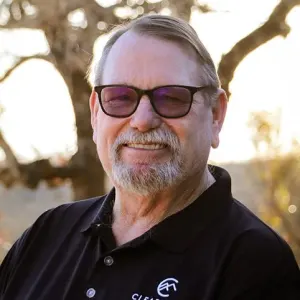
Mike Carter
Alumni Manager
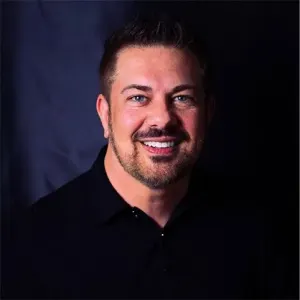
Jeff Pattison
VP of Outreach & Marketing
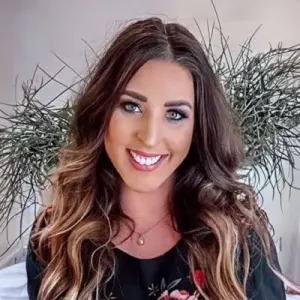
Jackie Ringgold
Outreach Territory Manager
View More Team Members
Learn more about Clearfork Academy For Boys
Testimonial
We want to thank you all for the compassion Clearfork academy has shown our son and our family through the most challenging times as parents. The care our son received while in treatment at Clearfork academy far exceeded our expectations. The most comforting part of this experience was the staff’s compassion in finding the best treatment approach for our son. Clearfork Academy provided the therapy, values and structure our son needed to begin his recovery and jumpstart his spiritual journey. We consider all Clearfork academy’s staff as an extension of our family since they treated us like family throughout our son’s therapy. Even though our son has graduated from Clearfork Academy, we still feel supported through the alumni group. This is not a journey we expected for our teen, but we are forever thankful for Clearfork Academy!
Anonymous
We love hearing about your treatment experience
Help individuals and families seeking treatment by sharing your first-hand experience with this treatment provider. Review Guidelines.


















